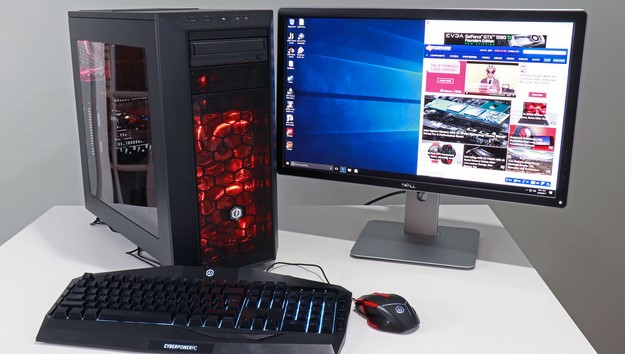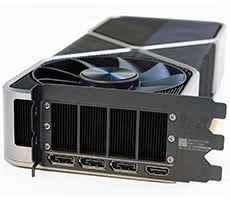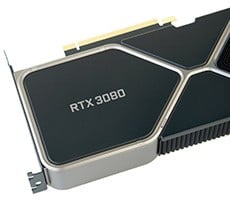AMD Ryzen Game Optimization Begins: Ashes Of The Singularity Patched And Tested
AMD Ryzen Gaming Performance Optimizations A Month After Launch

AMD Ryzen 7 1800X Gaming System Built By CyberPower PC
Well today, we have some early proof-positive of that, as Oxide Games, in concert with AMD, released a patch for its title Ashes Of The Singularity. Ashes has been a "poster child" game engine of sorts for AMD Radeon graphics over the years (especially with respect to DX12) and it was one that ironically showed some of the wildest (negative) variations in Ryzen CPU performance versus Intel processors.
With this new patch that is now public for the game, however, AMD claims to have regained significant ground in benchmark results at all resolutions. And so, with a new AMD Ryzen 7 1800X-powered system from CyberPower in-house, we've set out to put AMD's claim to the test. Here's to a little East Coast Ryzen testing, or should we say re-testing...


Test System Configuration Notes:
When configuring our test systems for our benchmark runs, we first made sure all firmware was up to date, then we entered their respective system BIOSes / UEFI and set each board to its "Optimized" or "High performance" defaults. We then saved the settings, re-entered the BIOS and set the memory frequency to the maximum officially supported speed for the given platform (without overclocking). The SSDs were then formatted, and the latest build of Windows 10 Pro x64 was installed.

AMD Ryzen 7 1800X Installed In A Gigabyte Aorus AX370-Gaming 5 Motherboard
Also note, that to ensure AMD's SenseMI technology was performing to its full potential, the Ryzen-powered systems used the Windows 10 High Performance power profile, which allows Ryzen processors to scale to their factory specified XFR clock speed range.
|

A Quick SiSoft SANDRA Sanity Check
In what was impeccable timing, our friends at SiSoftware sent over a new version of thier SANDRA benchmark suite with "official" support for the Ryzen architecture. So. we decided to fire that up first, for a quick sanity check...
In the graph above, for the CPU tests we're reporting the Aggregate benchmark number for the test module. As you can see, we're observing no tangible gains in memory bandwidth for Ryzen, and little to no gains in the CPU Multimedia test, but we do see roughly a 6 percent gain in aggregate Processor Arithmetic throughput. So, interesting but not earth-shattering perhaps.
Let's move on to Ashes Of The Singularity and see what AMD has been working on with Oxide games to optimize for Ryzen...







